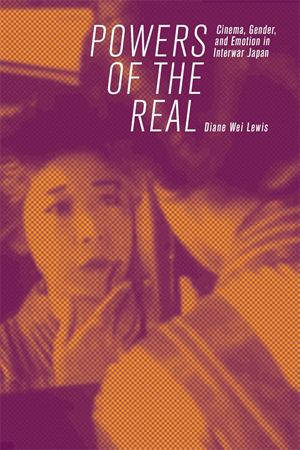Diane Wei Lewis's research focuses on Japanese cinema and media and their connections to mass culture, capitalism, and modernity.
Diane Wei Lewis received her Ph.D. in Cinema and Media Studies from the University of Chicago in 2011. Her work centers on the 1910s and 1920s—key decades for the industrialization of cinema, the expansion of mass media, and the introduction of new media technologies in Japan. Her scholarship and teaching combine historical research with theoretical inquiry and introduce interdisciplinary perspectives to the history of cinema. She examines Japanese cinema and media with an emphasis on histories and theories of labor, consumerism, emotion, and gender and sexuality.
Her first book, Powers of the Real: Cinema, Gender, and Emotion in Interwar Japan (Harvard University Asia Center, 2019), explores the cultural politics of cinematic realism in the 1920s and early 1930s. Beginning with the devastating 1923 Great Kanto Earthquake, which heightened the stakes for thinking about cinema's ability to reach a mass audience and shape public sentiment, Lewis traces popular understandings of cinema's persuasive sensory realism in terms of emotion, identification, and pleasure. The book situates cinema within a broad media context, demonstrating cinema's imbrication in consumer culture and other forms of mass media. It interrogates images of women and ideas about femininity that figured prominently in discourses on media technology and commercial mass culture, highlighting the role that ideas about gender and sexuality play in vernacular theories of media.
Her current book project examines the rise of network technologies in 1980s Japan, their impact on the organization of work and especially the image of home-based labor, and the function that ideas about sexual difference play in theories of new media. This research explores how telecommuting, home automation, and office automation both challenged and were constrained by popular conceptions of gender identity and gendered labor, professionalism and domesticity, and urban and suburban space. She is also working on a social history of the Proletarian Film League of Japan (Prokino, 1929-1934).



